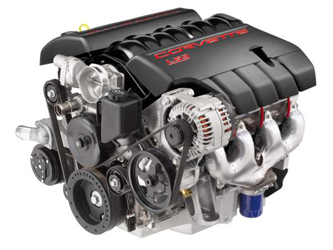P13D3 Engine Trouble Code
Meaning of P13D3 engine trouble code is a kind of powertrain trouble code and when your car's 'P13D3 Check Engine' light comes on, it's usually accompanied by a sinking feeling in the pit of your stomach. The light could mean a costly problem, like a bad catalytic converter, or it could be something minor, like a loose gas cap. But in many cases, it means at minimum that you'll be visiting the car dealer to locate the malfunction and get the light turned off.
P13D3 Fault Symptoms :
|
If one of these reasons for P13D3 code is occuring now you should check P13D3 repair processes.
Now don't ask yourself; What should you do with P13D3 code ? The solution is here : |
P13D3 Possible Solution:

|
Disconnected, dirty or fouled spark plugs are common causes for engines that won't start. Spark plugs typically need to be replaced every season or 25 hours of use. You should also check that the spark plug gap is set properly. If your spark plugs look good, problems with your ignition system can also preventing a spark. These can range from a faulty spark plug lead, shorted kill switch or flywheel key damage. |
P13D3 Code Meaning :
| P | 1 | 3 | d | 3 |
|---|---|---|---|---|
| OBD-II Diagnostic Powertrain (P) Trouble Code For Engine | Fuel And Air Metering | Throttle/Pedal Position Sensor/Switch A Circuit Intermittent | Exhaust Gas Recirculation Sensor B Circuit High |
Is the fuel pump sometimes not priming when you turn the key to ON(II)? Start by measuring the fuel pressure and checking whether you have bright white-bluish spark at all four plugs. The mechanical timing is also something that you should check, as we mentioned above.
P13D3 OBD-II Diagnostic Powertrain (P) Trouble Code DescriptionP13D3 engine trouble code is about Exhaust Gas Recirculation Sensor B Circuit High.Main reason For P13D3 CodeThe reason of P13D3 OBD-II Engine Trouble Code is Throttle/Pedal Position Sensor/Switch A Circuit Intermittent. |
P13D3 DTCs may also be triggered by faults earlier down the line. For example, a dirty MAF sensor might be causing the car to overcompensate in its fuel-trim adjustments. As a result, oxygen sensors are likely to report fuel mixture problems.

